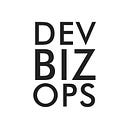Why Traditional Knowledge Management Fails
Part I of a four part series on developer efficiency and knowledge sharing. You may read parts II, III and IV once you have finished.
Do you know what happens when Stack Overflow goes down? Let me share some tweets by way of explanation:
That is just a small sampling of the fear that comes upon developers when they cannot access the world’s largest repository of programming knowledge in the world with over 18 million questions and 28 million answers.
Now imagine if that happened inside your company, where all the knowledge, documents, assets, and know-how just disappeared. The snarky answer might be to say that maybe things would move faster. But in all seriousness, all work would probably grind to a halt.
We all know that knowledge is a critical asset. It is so important, we often refer to it as intellectual capital, the collected institutional knowledge over time, including trade and business secrets. When you apply human talent to this capital, it drives innovation, production, competitive positioning, and revenue. Knowledge is money.
That is not how most companies treat their knowledge however. If you ask any developer, they are often left to hunt for answers through emails, chat, wikis, documents, social workplace apps, or tapping a colleague on the shoulder. Even if an answer is found, there is little guarantee that it will even be correct or discoverable for others.
So if knowledge is so important, why is it hard to collect, share, and update it?
What are the approaches?
In a McKinsey paper from 2004, there are three common approaches to knowledge management in large companies:
- Build It and They Will Use It — This is the common big bang approach, where the company starts a project to collect all the knowledge in one fell swoop and pour that into one “source of truth” technology platform.
- Take It from the Top — Instead of a technology, the company designates a group that centralizes knowledge creation and creates processes and tools to disseminate that knowledge throughout the organization.
- Let a Thousand Websites Bloom — Rather than one, centralized approach, the company allows teams to create systems and processes to collect the knowledge closer to the people with the actual knowledge.
Where did it go wrong?
While each approach has merits, they suffer fatal flaws that upend the stated goal. The big bang approach creates a glut of content that is difficult to search and update. Centralizing the creation of knowledge cuts out experts with the actual content. Decentralizing knowledge leads to information silos and minimizes cross-organizational learning.
The problem is companies have the wrong goal. They put the creation of a knowledge repository first and assume that all knowledge is useful and relevant. The result is then a glut of content that is low-quality, stale, and irrelevant. Instead of helping employees be more productive, the goal was build a huge knowledge database.
So the real question is what content do developers want that will be most useful for being effective and efficient in their work? That is the real goal.
Where does this leave us
So what helps developers? They want answers quickly to get back to coding, yet the systems put in place to help them be efficient rarely help. Unlike other domains of knowledge, software is rapidly changing, highly complex & has significant dependencies.
As an organization, this creates a technical knowledge gap. None of the tribal knowledge that truly constitutes intellectual capital is ever captured at an institutional level. Instead, that knowledge walks out the door every time a developer leaves for another company.
What is the answer then to helping developers to be more productive? First, we need to change the goal to a developer-centric one and not just build a huge knowledge database. Second, we need a new approach to knowledge creation that understands how developers consume and contribute content.
I have a few thought to share on those questions in part II of this post.
What did the Soviet Union and Russia bring to the ISS?
Very cool newer Stack Exchange community on space…
We help IT leaders in enterprises solve the cultural challenges involved in digital transformation and move towards a community based culture that delivers innovation and customer value faster. Learn more about our work here.
